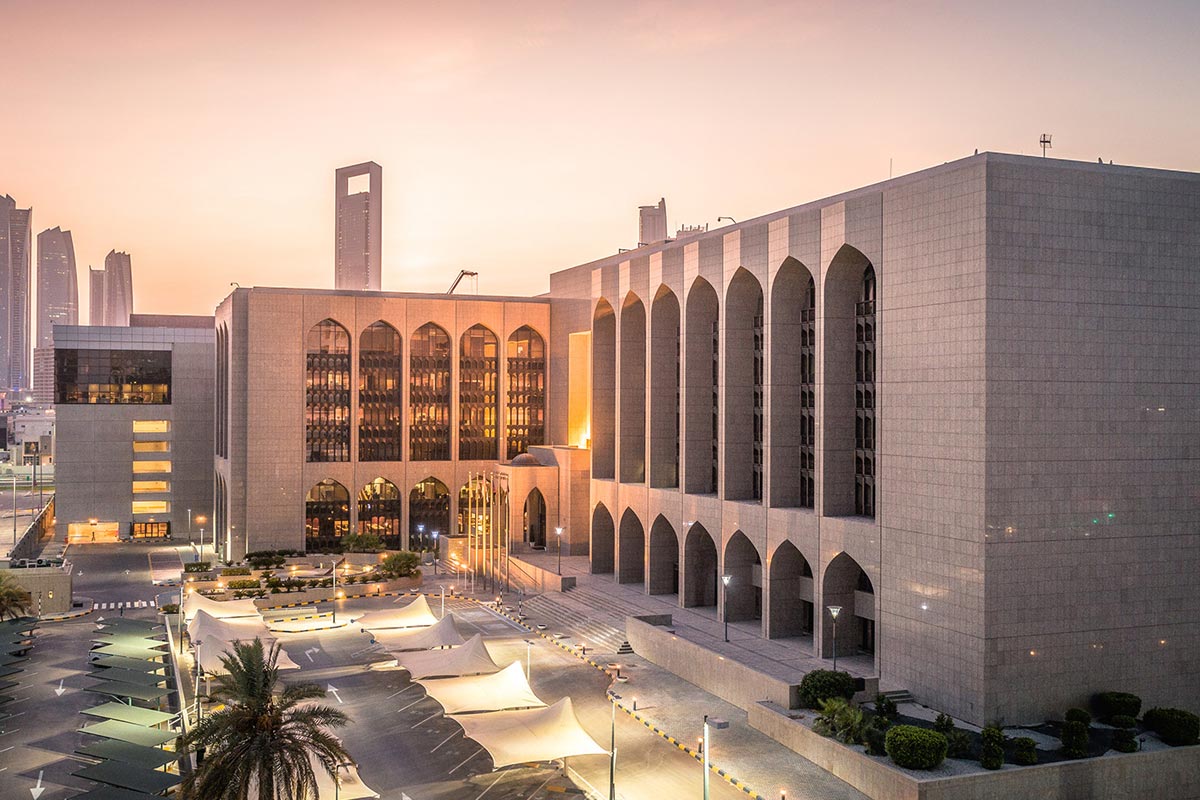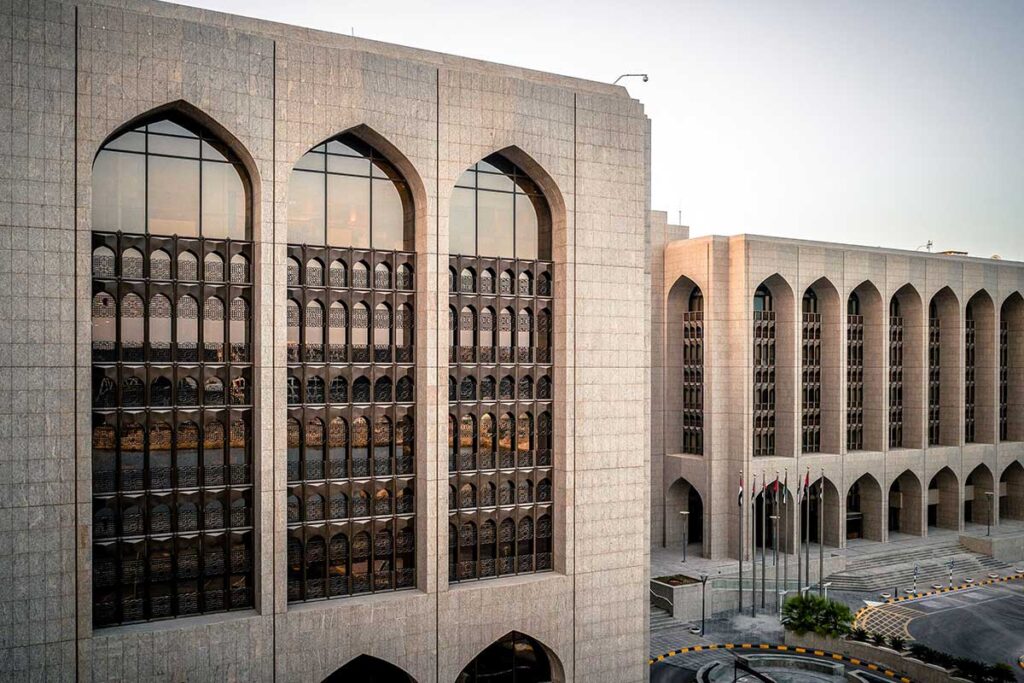UAE Updates Central Bank Law

The UAE has introduced a new Central Bank law to strengthen financial stability and protect consumer rights.
President His Highness Sheikh Mohamed bin Zayed Al Nahyan issued Federal Decree Law No. (6) of 2025 on the Central Bank, and the regulation of financial institutions, activities, and insurance operations.
The new Federal Decree Law forms part of the UAE’s ongoing efforts to enhance the legislative and supervisory frameworks of its financial sector.
UAE Central Bank law
It aims to bolster the stability, competitiveness, and global alignment of the UAE’s financial ecosystem while reinforcing the Central Bank’s independence and core role in ensuring monetary and financial stability.
The law defines the Central Bank’s principal functions, including the establishment and implementation of monetary policy, the supervision of licensed financial activities in line with international standards, and the issuance of regulations to ensure prudent and effective financial practices.
It also mandates the Central Bank to manage foreign reserves to cover the monetary base, support sustainable financing practices, and oversee the infrastructure of financial markets.
The institution is tasked with monitoring regulatory risks, integrating governance principles, and ensuring sound management of the nation’s foreign reserves.
The Federal Decree Law highlights customer protection and financial inclusion, requiring licensed financial institutions to provide community-wide access to proper banking and financial services.
This aligns with the UAE’s broader push toward digital transformation and financial innovation.
It establishes frameworks for national awareness campaigns, developed in cooperation with the financial sector and community organisations, and reaffirms policies aligning credit facilities with customer income to prevent irresponsible lending.
Consumer protection
The consumer protection system has also been enhanced by unifying the complaints process under the independent entity “Sanadak”, which handles and settles disputes between customers, banks, and insurance companies.
Specialised judicial committees will adjudicate financial disputes, with decisions up to AED100,000 ($27,230) deemed final and enforceable.
To protect customers and maintain financial stability, the law outlines proactive measures for early intervention in cases of financial deterioration among licensed institutions.
These include recovery plans, capital or liquidity adjustments, management changes, or direct Central Bank intervention through temporary committees, mergers, acquisitions, or liquidations where necessary.
The Central Bank is formally designated as the “Resolution Authority”, giving it powers to manage financial crises by removing or appointing management, recovering funds from responsible parties, transferring or selling assets, and restructuring capital. It may also establish temporary entities to manage assets or ensure the continuity of critical financial services.
In a move to strengthen accountability, the Federal Decree Law raises the ceiling for administrative fines to reflect the severity of violations and the size of related transactions.

Central Bank fines
The Central Bank can now impose proportional fines of up to ten times the value of the violation or unjust enrichment.
These fines may be automatically debited from accounts held by violators at the Central Bank or other licensed financial institutions.
The Central Bank also has the right to reach a reconciliation before a final judicial decision and may publish penalties on its official website to promote transparency and market discipline.
Key stipulations and objectives of the Decree Law
The UAE Government Media Office outlined the following key stipulations and objectives under Federal Decree Law No. (6) of 2025:
- Access to financial services: Licensed financial institutions must provide all community members with access to appropriate banking and financial services, in line with digital transformation and innovation efforts
- Enhanced consumer protection: The law unifies complaints and dispute resolution functions for customers of banks and insurance companies
- Early intervention measures: Proactive procedures are established for early intervention and settlement in cases of financial deterioration of licensed institutions
- Administrative fines: The ceiling for fines is raised to reflect the severity of violations and transaction volumes, up to ten times the value of the violation
- Automatic reconciliation: Fines may be automatically debited, with reconciliation permitted before final judicial rulings and the publication of penalty settlements on the Central Bank’s website
- Monetary and financial stability: The law safeguards the stability of the national currency and the wider financial system while ensuring prudent management of foreign exchange reserves
- Adequate guarantees: Licensed financial institutions are required to maintain sufficient guarantees for all facilities provided to natural persons and sole proprietorship customers
Dubais Magellan Capital Launches Flagship $975m Hedge Fund
Dubai-based manager is opening its absolute return platform to third-party capital for the first time The post Dubai’... Read more
UAEs FAB Posts 22% Jump In Q4 Profit, Beats Estimates
UAE's biggest bank FAB reported a record 2025 profit after strong Q4 results, higher non-interest income and expanding ... Read more
Dubai Unveils $27.2bn DIFC Zabeel District In Landmark Financial Hub Expansion
Dubai unveils $27.2bn DIFC Zabeel District, a landmark expansion set to reshape the city’s financial hub amid global ... Read more
Digital Payments Dominate Saudi Arabia As Cash Use Continues To Decline, Visa Says
Visa research shows 80% of transactions in Saudi Arabia are now digital, highlighting accelerating consumer shift away ... Read more
Saudi Venture Capital Surges 145 Per Cent To $1.72bn In Record 2025
Saudi Arabia leads MENA venture capital for a third year, with 2025 investment reaching $1.72bn across a record 257 dea... Read more
GCC Debt Market Tops $1.1trn As Dollar Issuance Surges – Report
Fitch Ratings says GCC debt capital markets grew 14% in 2025, led by US dollar borrowing and record sukuk activity The ... Read more

